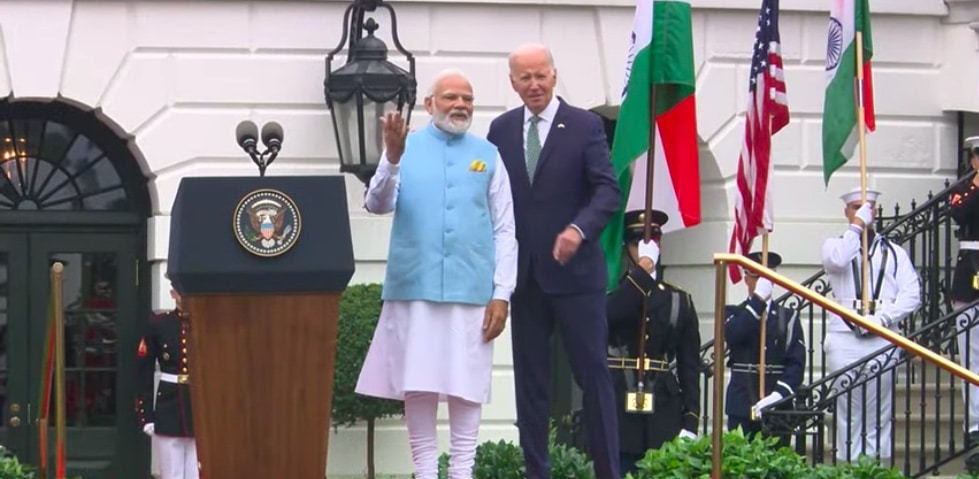President Biden on Thursday welcomed India’s Prime Minister Narendra Modi to the White House for a state visit that was to include a black tie dinner.
“I am honored to be the first to have you here in 15 years,” Biden said during a welcoming ceremony on the White House South Lawn following a multi-gun salute. “The United States is honoring and hosting an official visit for the Republic of India. Prime Minister Modi, welcome back to the White House.”
Biden noted that the two had “spent a lot of time together” going back to when he was Vice President, and Modi had first been elected Prime Minister. “And since I’ve become President, we continue a relationship built on mutual trust, candor and respect,” he added.
The invite to Modi reflects the delicate balance Biden is attempting to maintain between geopolitical strategy and his campaign promise to place human rights at the center of his foreign policy.
India, the world’s most populous nation, prides itself on being the world’s largest democracy. However, analysts have warned that the country is backsliding on human rights, including religious freedom and journalistic freedom, as it attempts to compete with China, which was until recently the world’s most populous nation.
Earlier this year, for example, Indian tax authorities raided local BBC offices after the network aired a documentary—banned in India—that was critical of Modi’s role in riots back in 2002 during which over 1,000 people died, mostly Muslims.
More than 70 Democratic members of Congress have signed a letter urging Biden to discuss human rights and democratic values during Modi’s visit.
“The challenges and opportunities facing the world in this century require that India and the United States work and lead together—and we are,” Biden said on Thursday.
He further asserted that with Modi’s partnership, the Quad nations—the United States, India, Australia and Japan—have been “invigorated” in their efforts to advance a “free, open, secure and prosperous Indo-Pacific.”
During the visit, Biden was also expected to attempt to convince Modi toward support for Ukraine in its war against Russia. The Biden Administration is hoping that military hardware sales to India will wean it off dependence on Russian arms suppliers. However, officials who previewed the visit offered no indications that Modi would move closer to backing Ukraine, nor were there any concrete examples of increased cooperation to counter China’s assertive moves in the Indo-Pacific.
“The societies and institutions of both India and the U.S. are based on democratic values. The constitutions of both countries begin with the following three words, ‘We the people,’ Modi noted during his remarks. “Both of our countries take pride in their diversity. Both of us believe in the fundamental principle of the interest of all and the welfare of all.”
President Biden also gave a shout out to Vice President Harris, whose mother immigrated to the U.S. from India at age 19 and became a scientist with dreams of curing cancer.
“A family like so many of ours in our nation that speaks to the thousand stories of determination, courage and hope,” said Biden. “Stories that define the relationship and the limitless possibilities between the United States and India.”


